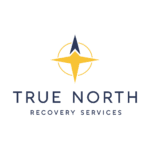When facing addiction or mental health challenges, choosing the right level of care can feel overwhelming. Two primary treatment options that many people consider are Intensive Outpatient Programs (IOP) and standard outpatient treatment. Understanding the key differences between these approaches is crucial for making informed decisions about your recovery journey.
This comprehensive guide explores when intensive treatment becomes medically necessary and how to determine which option best suits your unique circumstances.
What is an Intensive Outpatient Program (IOP)?
An Intensive Outpatient Program represents a structured treatment approach that bridges the gap between inpatient care and traditional outpatient therapy. IOPs offer a higher level of intensity than standard outpatient programs but a lower level than inpatient rehab.
Key Features of IOP:
- Frequency: Usually between three to five days per week
- Duration: Typically 3-4 hours per session
- Flexibility: Allows participants to maintain work, school, and family commitments
- Comprehensive care: Includes individual therapy, group sessions, family counseling, and educational components
IOPs are designed for individuals who need more support than weekly therapy sessions but don’t require 24-hour medical supervision.
Understanding Standard Outpatient Treatment
Standard outpatient treatment offers a more flexible approach to addiction and mental health care. This level of care is ideal for individuals with stable conditions who can benefit from regular therapeutic support while maintaining their daily routines.
Characteristics of Standard Outpatient Care:
- Frequency: Typically one to three days per week
- Session length: Usually 45-90 minutes per appointment
- Flexibility: Maximum scheduling flexibility
- Focus: Individual therapy with occasional group sessions
Key Differences: IOP vs. Standard Outpatient
| Aspect | Intensive Outpatient Program | Standard Outpatient |
|---|---|---|
| Time Commitment | 9-20 hours per week | 1-3 hours per week |
| Session Frequency | 3-5 days per week | 1-3 days per week |
| Structure Level | Highly structured | Flexible structure |
| Group Therapy | Extensive group work | Limited group sessions |
| Family Involvement | Regular family sessions | Occasional family therapy |
| Cost | Higher due to intensity | Lower overall costs |
| Duration | 8-12 weeks typical | Varies widely |
When is Intensive Treatment Medically Necessary?
Determining medical necessity for IOP involves careful assessment of multiple factors. Healthcare providers evaluate specific criteria to recommend the appropriate level of care.
Clinical Indicators for IOP:
Severity of Symptoms
- Moderate to severe addiction or mental health symptoms
- Recent relapse after standard outpatient treatment
- Co-occurring disorders requiring integrated treatment
- Significant functional impairment in daily activities
Risk Factors
- History of multiple treatment episodes
- Limited social support system
- Environmental triggers in the living situation
- Medical complications requiring closer monitoring
Assessment Criteria
- Mild to moderate symptoms with a medical stability and support system in place
- Need for a structured environment without 24-hour supervision
- Ability to maintain basic daily functioning
- Motivation for intensive engagement in treatment
Who Benefits Most from Each Treatment Level?
Ideal Candidates for IOP:
Recent Inpatient Discharge: Individuals transitioning from residential treatment who need continued intensive support while reintegrating into daily life.
Multiple Treatment Attempts: Those who have struggled with standard outpatient care and need more structure and accountability.
Co-occurring Disorder:s People managing both addiction and mental health conditions requiring integrated treatment approaches.
High-Risk Situation:s Individuals facing significant environmental stressors or triggers that could compromise recovery.
Best Suited for Standard Outpatient:
Stable Recovery: People with established sobriety who need ongoing maintenance support.
Mild Symptoms: Individuals with less severe addiction or mental health concerns.
Strong Support Systems: Those with robust family, social, or community support networks.
Scheduling Constraint:s People who cannot commit to intensive program schedules due to work or family obligations.
Treatment Components and Therapeutic Approaches
IOP Treatment Elements:
Group Therapy Sessions
- Process groups focusing on addiction recovery
- Skills-based groups teaching coping strategies
- Psychoeducational groups covering addiction science
- Relapse prevention planning
Individual Counseling
- Personalized treatment planning
- Trauma-informed care when indicated
- Medication management coordination
- Crisis intervention support
Family Therapy
- Family education about addiction
- Communication skills training
- Boundary setting and healthy relationships
- Recovery support planning
Standard Outpatient Components:
Individual Therapy
- Weekly or bi-weekly sessions
- Cognitive-behavioral therapy (CBT)
- Motivational interviewing
- Trauma-focused treatments when appropriate
Limited Group Work
- Occasional group sessions
- Support group referrals
- Educational workshops
Cost Considerations and Insurance Coverage
Understanding the financial implications of each treatment level helps families make informed decisions about care.
IOP Costs:
- Higher weekly costs due to intensive services
- Often covered by insurance as medically necessary
- May require prior authorization
- Typically shorter overall duration
Standard Outpatient Costs:
- Lower per-session costs
- Generally well-covered by insurance
- Longer-term treatment commitment
- Flexible payment options are often available
Making the Right Choice: Assessment and Placement
Professional assessment is crucial for determining appropriate care levels. Qualified clinicians use standardized tools to evaluate treatment needs.
Assessment Factors:
Clinical Evaluation
- Mental health screening
- Substance use assessment
- Medical history review
- Functional status evaluation
Psychosocial Assessment
- Support system evaluation
- Housing stability
- Employment status
- Legal considerations
Risk Assessment
- Suicide risk evaluation
- Relapse risk factors
- Safety concerns
- Trauma history
Frequently Asked Questions
How long do IOP programs typically last?
Most IOP programs run for 8-12 weeks, with some extending longer based on individual progress and needs. The intensive phase usually decreases over time as participants demonstrate stability.
Can I work while attending an IOP?
Yes, IOPs are specifically designed to allow participants to maintain employment, education, and family responsibilities. Programs offer various scheduling options including evening and weekend sessions.
What happens if I need more intensive care during treatment?
Treatment plans are regularly reviewed and adjusted based on progress. If additional support is needed, your care team may recommend stepping up to a higher level of care, including partial hospitalization or inpatient treatment.
Is family involvement required in these programs?
While not always mandatory, family involvement is strongly encouraged in both IOP and standard outpatient treatment. Family therapy helps create supportive home environments crucial for sustained recovery.
How do I know if I’m ready to step down from IOP to standard outpatient care?
Readiness indicators include symptom stability, consistent attendance, demonstrated coping skills, stable living situation, and reduced risk factors. Your treatment team will assess these factors regularly.
True North Recovery Services: Comprehensive Addiction and Mental Health Support
At True North Recovery Services, we understand that recovery is a deeply personal journey that requires individualized care and unwavering support. Located in the Denver Metro Area, we offer comprehensive outpatient addiction treatment services designed to help individuals facing substance use disorders, including opioid use disorder (OUD) and alcohol use disorder (AUD).
Our holistic approach recognizes that treatment is not a one-size-fits-all process. We promote comprehensive care that encourages clients to explore new pathways supporting their unique recovery journey. Our mission extends beyond simply treating addiction – we facilitate our clients’ journey away from substance abuse toward self-discovery, helping them find aspects of who they were always meant to be.
Our Treatment Philosophy
We believe in providing compassionate care with a foundation built on kindness, respect, and unwavering support. Our innovative model blends evidence-based treatments with compassionate care teams and user-friendly digital platforms, all designed to deliver exceptional outcomes in the most efficient and convenient manner.
Services We Provide
Comprehensive Medical Care: Our clinical team, with years of experience and validated research insights, provides high-quality medical care tailored to each individual’s needs.
Recovery Support Services: We offer ongoing support services that extend beyond traditional therapy, helping clients build the skills and networks necessary for sustained recovery.
Flexible Treatment Options: Understanding that life doesn’t stop for treatment, we provide flexible scheduling options that allow individuals to maintain their daily responsibilities while receiving the care they need.
Our doors are open Monday through Friday from 8am to 9pm, and we accept most major insurance plans to ensure treatment accessibility for those who need it most.
The Path Forward: Choosing Your Treatment Journey
The decision between IOP and standard outpatient treatment should always be made in consultation with qualified healthcare professionals. Both options offer valuable pathways to recovery, and the right choice depends on your unique circumstances, treatment history, and current needs.
Remember that treatment levels can be adjusted as your recovery progresses. Many individuals benefit from starting with intensive care and gradually transitioning to less intensive support as they build stability and coping skills.
Key Takeaways:
- IOP provides an intensive structure for those needing more support than weekly therapy
- Standard outpatient care offers flexibility for individuals with stable conditions
- Medical necessity is determined through comprehensive professional assessment
- Both treatment levels can be effective when properly matched to individual needs
- Recovery is a journey that may require different levels of care at different times
Whether you’re considering treatment for yourself or a loved one, understanding these options empowers you to make informed decisions about care. Professional guidance ensures that you receive the appropriate level of support for your unique situation and recovery goals.
The journey to recovery looks different for everyone, but with the right support and treatment approach, lasting change is possible. Take the first step by reaching out to qualified professionals who can help assess your needs and guide you toward the most appropriate care level for your circumstances.


